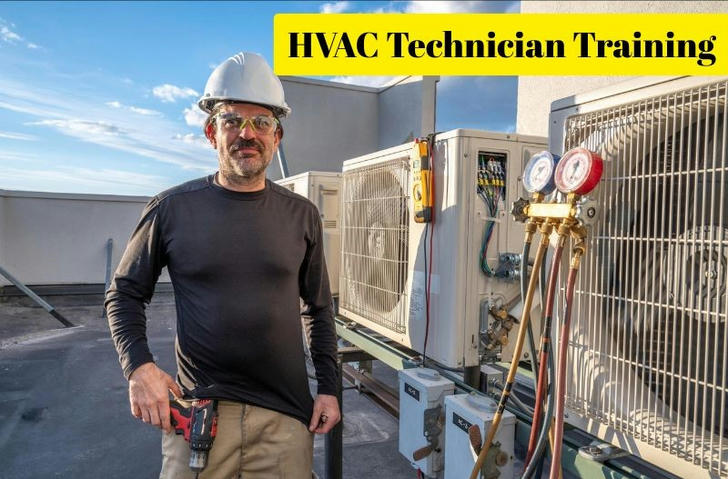🛠️ HVAC Technician Training in 2025: Your Path to a Skilled Trade Career
he demand for trained HVAC technicians continues to rise across the U.S. in 2025, driven by aging infrastructure and growing emphasis on energy efficiency. Whether you're just starting or looking to switch careers, HVAC technician training offers a hands-on route into a steady, essential industry.

🔧 What Does an HVAC Technician Do?
HVAC (Heating, Ventilation, and Air Conditioning) technicians install, maintain, and repair systems that regulate indoor environments. From residential units to industrial systems, their work impacts comfort, health, and energy use daily. With climate control systems becoming more advanced, skilled technicians are more valuable than ever.
📚 What Does HVAC Training Include?
Most HVAC training programs cover:
Electrical systems and safety
Thermodynamics and heat transfer
Refrigeration systems
Installation and repair of HVAC units
EPA 608 Certification prep (required to handle refrigerants)
Customer service and workplace professionalism
Some programs also incorporate on-the-job experience, which is critical in such a hands-on field.
“HVAC isn’t just about fixing broken AC units. Technicians today must understand advanced diagnostics, smart thermostats, and green energy solutions,” says Mark Dawson, CEO of Service Experts Heating & Air Conditioning.
🎓 What to Expect from HVAC Technician Training
Most HVAC training programs in 2025 offer:
Hands-on lab experience with real equipment
Fundamentals of refrigeration, electricity, and air systems
Preparation for certifications like EPA Section 608
Career readiness support for entry-level positions
Training often takes place in a hybrid format, balancing classroom theory with practical application.
💼 Why HVAC Is a Smart Career Move
High Job Security – Technicians are needed in all climates, in every state.
Good Earning Potential – HVAC jobs often lead to above-average wages, especially with certifications.
Growth Opportunities – Technicians can advance into roles like system designer, inspector, or contractor.
Mobile Skills – HVAC knowledge is applicable nationwide, giving you flexibility in where you live and work.
❓ FAQs
Q: How long does HVAC training take?
Most programs last 6 months to 2 years, depending on the level of certification or degree pursued.
Q: Is HVAC a good career in 2025 and beyond?
Yes. With rising demand for skilled tradespeople and an aging workforce, HVAC is a reliable career path.
Q: What certifications should I look for?
Start with EPA Section 608. Others include NATE (North American Technician Excellence) and HVAC Excellence credentials.
🚀 Ready to Get Started?
HVAC technician training is a strong choice for those who enjoy mechanical problem-solving, physical work, and job stability. If you're looking for a trade that rewards skill, reliability, and certification, this career path is worth exploring.
